The Salerno Book Of Health
The Salerno Book of Health. Images from History of the School of Salernum by Sir John Harington. 1920.
With Introduction by Dr. Ian Carr.
The earliest Italian medical school opened in Salerno in the ninth century AD, and as the place where the streams of classical, Arab and Jewish medicine flowed together was the predecessor of the medical renaissance. A number of medical texts have survived from the Salerno school on various aspects of medicine. The best known is the Regimen Sanitatis Salernitanum, the Salerno Book of Health. The book is filled with practical suggestions for maintaining health, at a time when medicine was largely ineffective in curing sickness. It was translated by Sir John Harington, who is also credited with the invention of that most useful, and comforting of devices, the water closet, the seat of civilization. The Salerno Book of Health is the lineal ancestor of "Wellness".
Dr. Ian Carr, Professor of Pathology, Faculty of Medicine, University of Manitoba
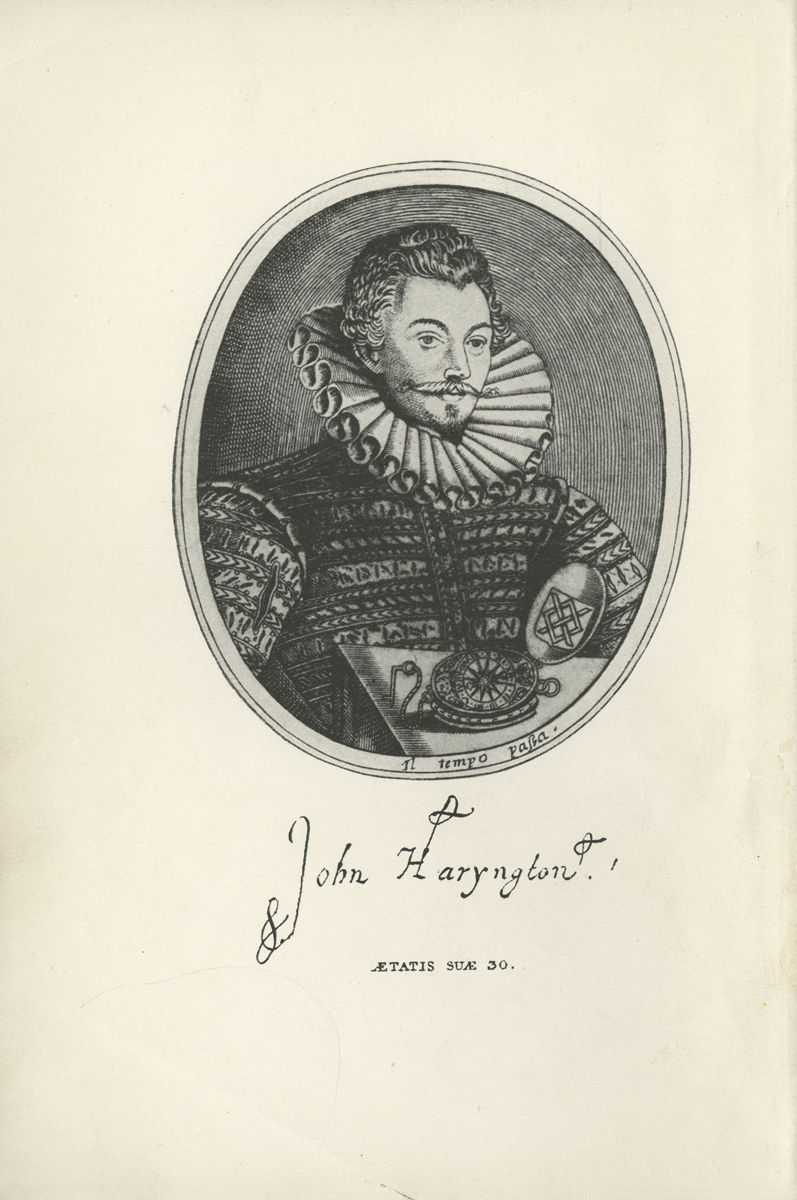
Title Page
The English Version
by Sir John Harington
History of the School of Salernum by
Francis R. Packard, M.D.
And a note on the prehistory of the
regimen sanitatis by
Fielding H. Garrison, M.D.
New York
Paul B. Hoeber
1920
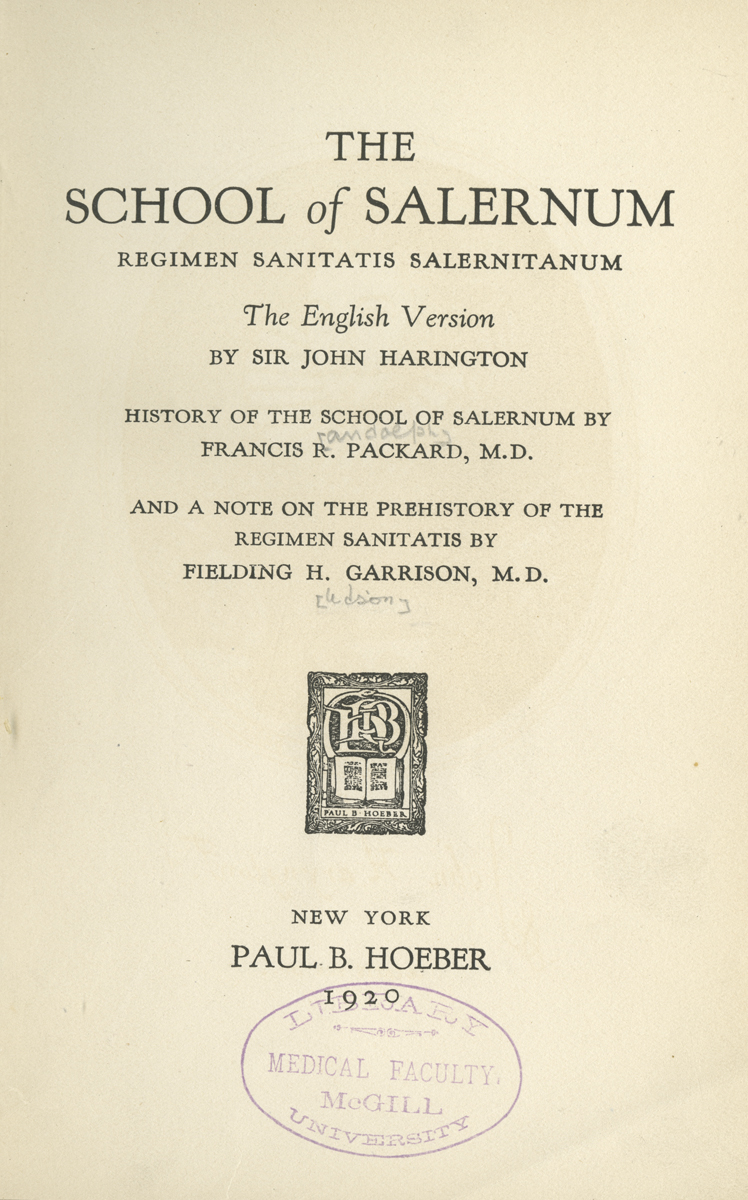
Schoole (p. 75)
The Salerne Schoole doth by thefe lines
impart
All health to Englands King, and doth aduife
From care his head to keepe, from wrath his
heart,
Drinke not much wine, fuz light, and foone arife,
When meate is gone, long fitting breedeth
fmart:
And after-noone ftill waking keepe your eyes.
When mou'd you find your felfe to
Natures Needs,
Forbeare them not, for that much dan-
ger breeds,
Vfe three Phyficions ftill; firft Doctor Quiet,
Next Doctor Merry-man, and Doctor Dyet.
The Medieval Physician in His Office (pp. 76 & 77)
Rise earely in the morne, and ftraight
remember,
With water cold to wafh your hands and eyees,
In gentle fafhion retching euery member,
An to refrefh your braine when as you rife,
In heat, in colde, in Iuly and December,
Both comb your head, and rub your
teeth likewife:
If blead you haue, keep coole, if bath'
keepe warme:
If din'd, to ftand or walke will do no harme
Three things preferue the fight, Graffe,
Glaffe, & foutains,
At Eue'n fprings, at morning vifit mountains.
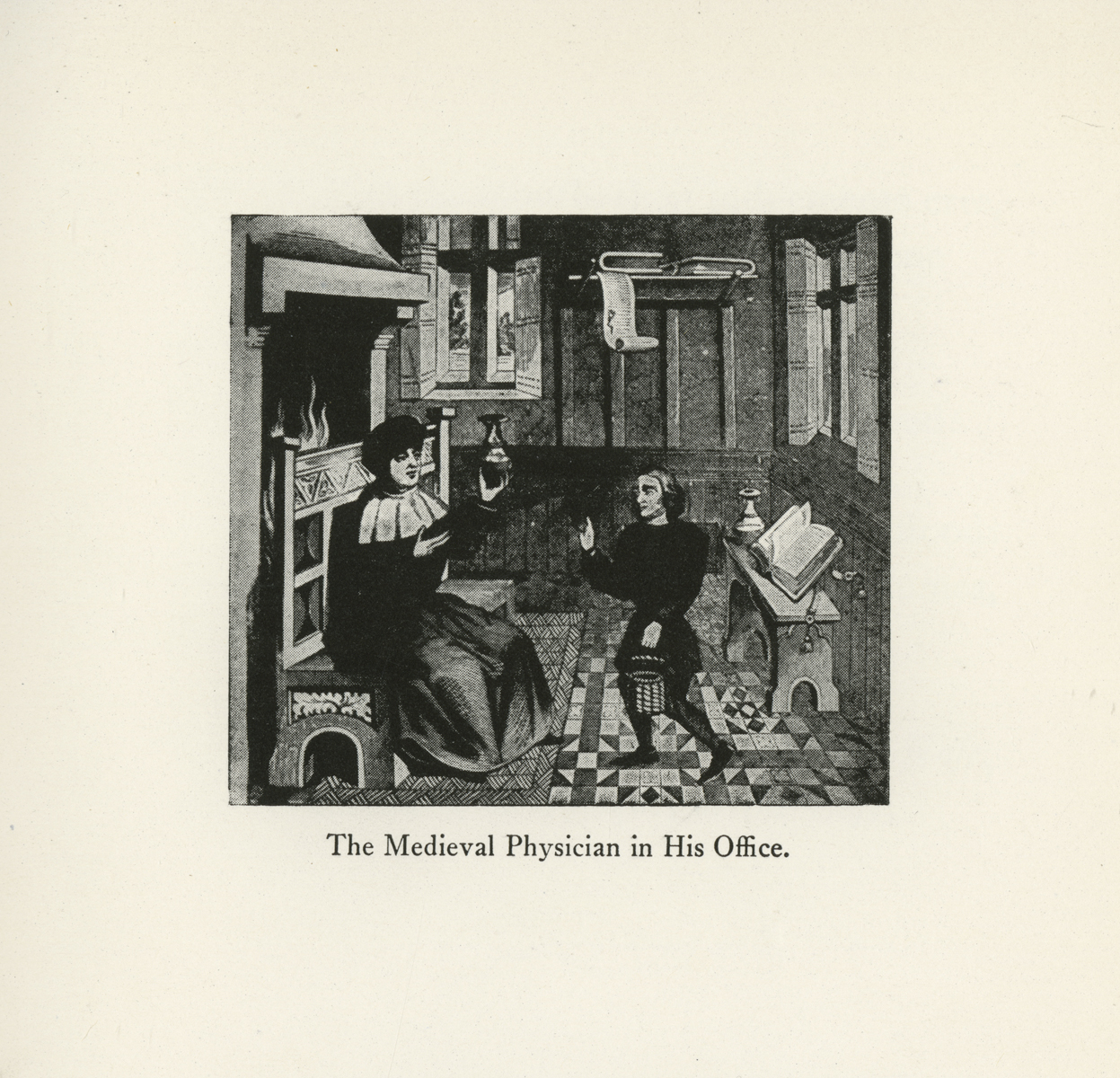
Text from p. 84, images from pp. 83 and 85
White Muskadell, and Candie wine, and
Greeke,
Do make men's wits and bodies groffe and fat;
Red wine doth make the voyce oft-time
to feeke,
An hath a binding qualitie to that;
Canarie, and Madera, both are like
To make one leane indeed: (but wot you what)
Who fay they make one leane, would
make one laffe
They meane, they make on leane vpon
a staffe.
Wine, women, Baths, by Art or Nature warme,
Vs'd or abus'd do men much good or harme.
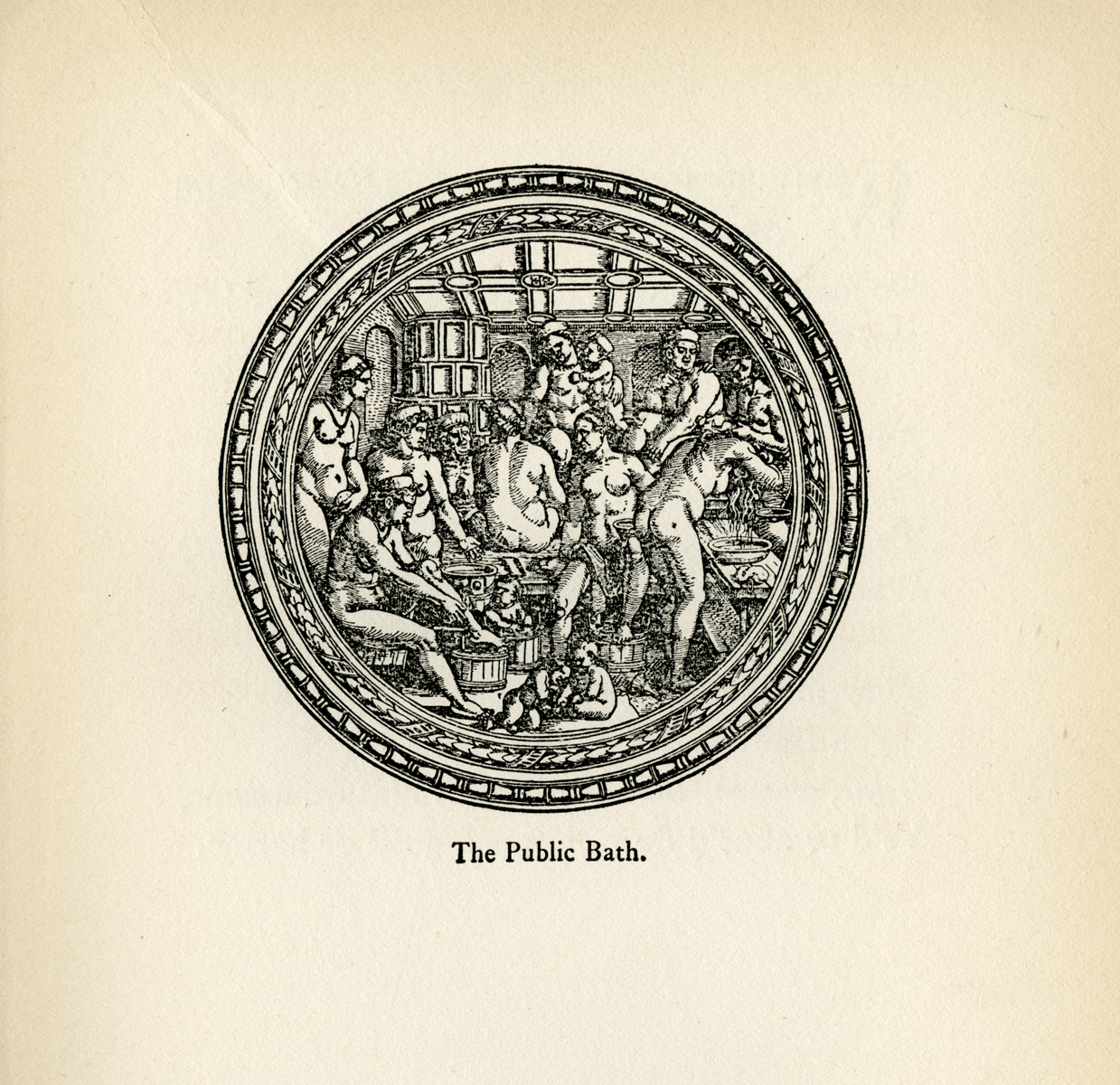
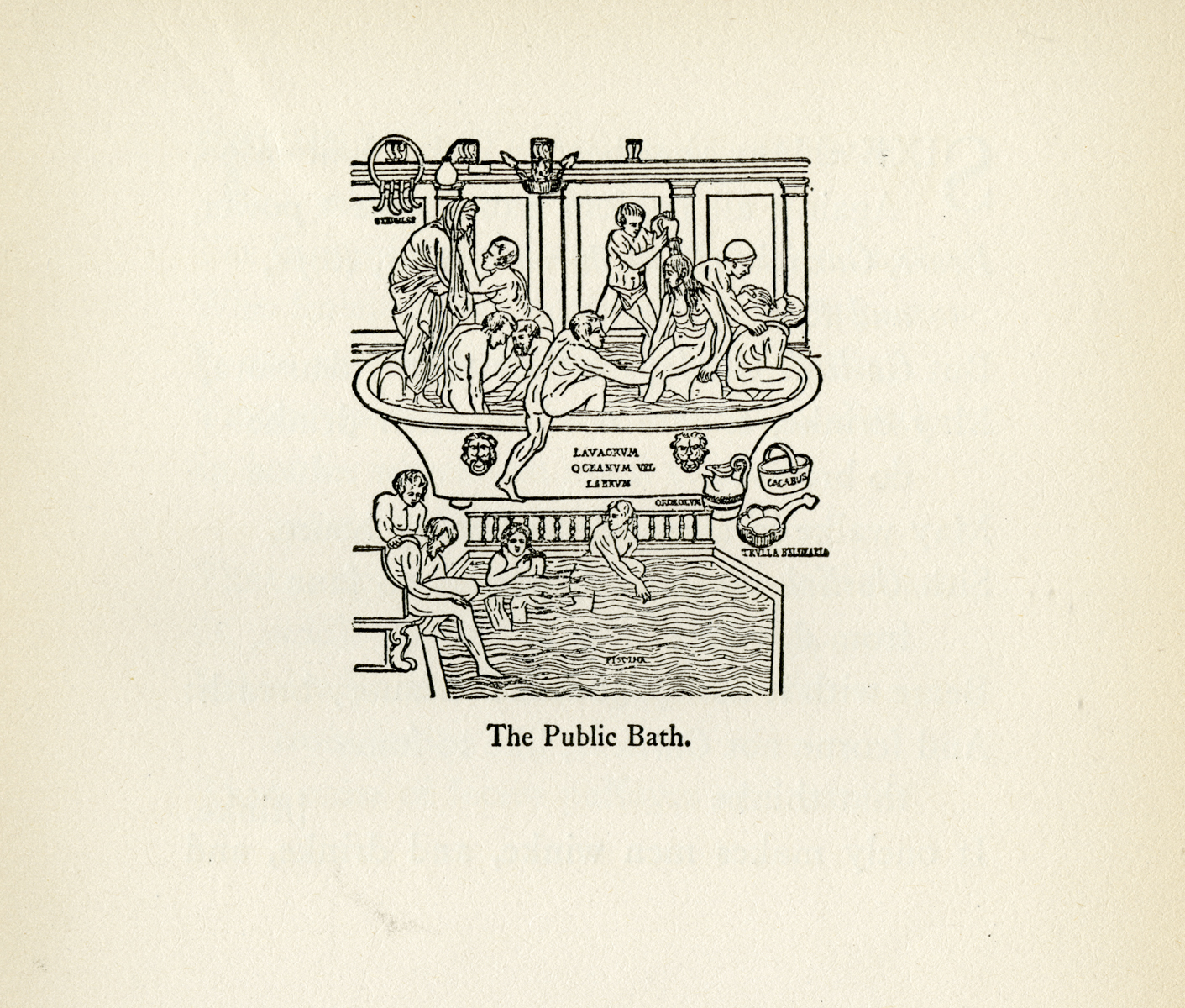
Humors (pp. 132 and 133)
Foure humors raigne within our bodies
wholly,
And thefe compared to foure Elements,
The Sanguine, Choller, Flegme, and Melancholy,
The latter two are heauie, dull of fence,
Th' other two are mor Iouiall, quicke and
Iolly,
And may be likened thus without offence,
Like ayre both warme and moift, is Sanguine
cleare,
Like fire doth Choler hot and drie appeare.
Like water cold and moift is Flegmatique,
The Melancholy cold, drie earth is like.
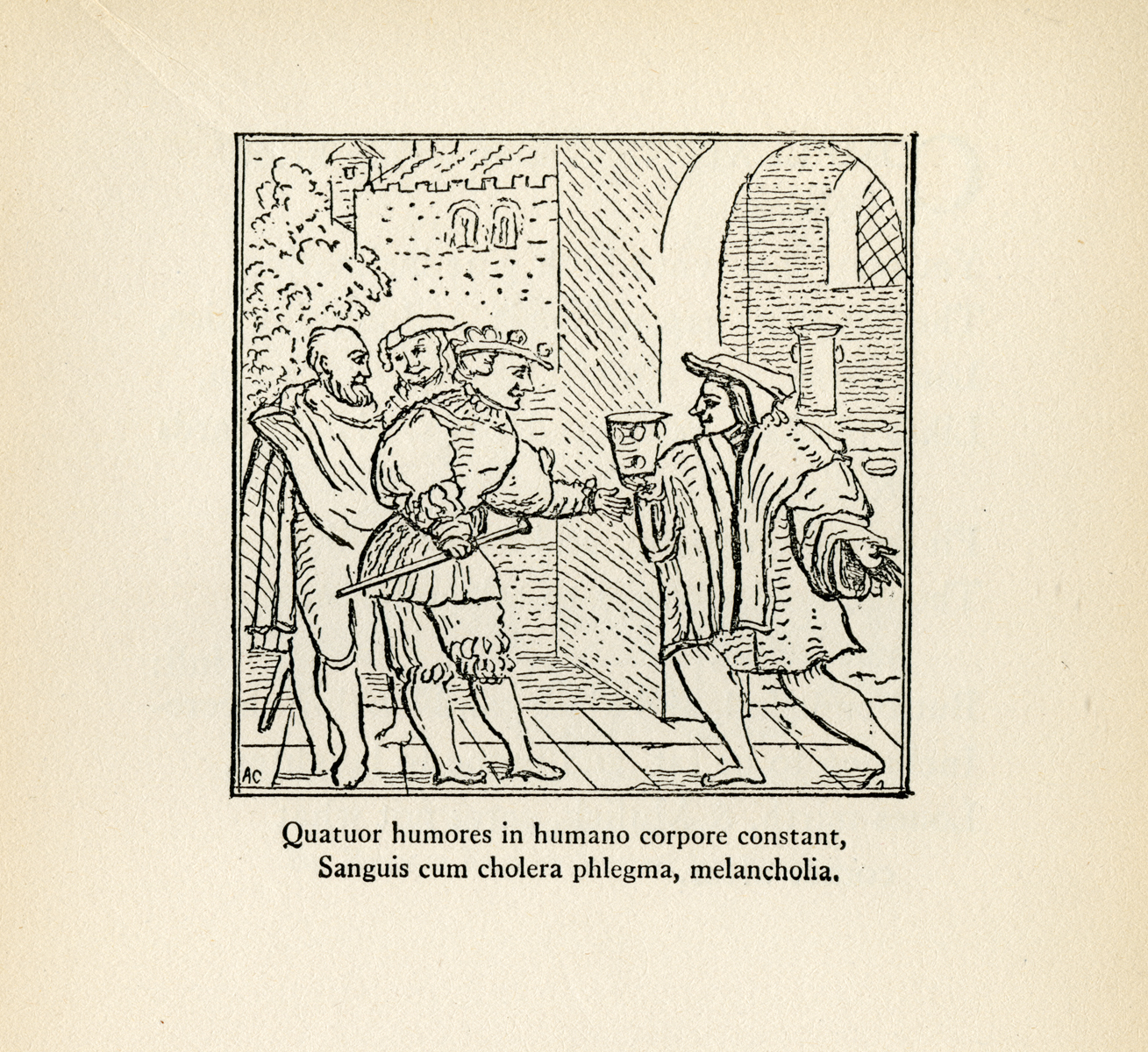
Sanguine (pp. 134 and 135)
Complexions cannot vertue breed
or vice,
Yet may they vnto both giue inclination,
The Sanguine game-fome is, and nothing nice,
Loue Wine, and Women, and all recreation,
Likes pleafant tales, and news, playes, cards
& dice,
Fit for all company, and euery fafhion:
Though bold, not apt to take offence,
not irefull,
full:
But bountifull, and kinde, and looking cheere-
Inclining to be fat, and prone to laughter,
Loues mirth, & Mufick, cares not what
comes after.
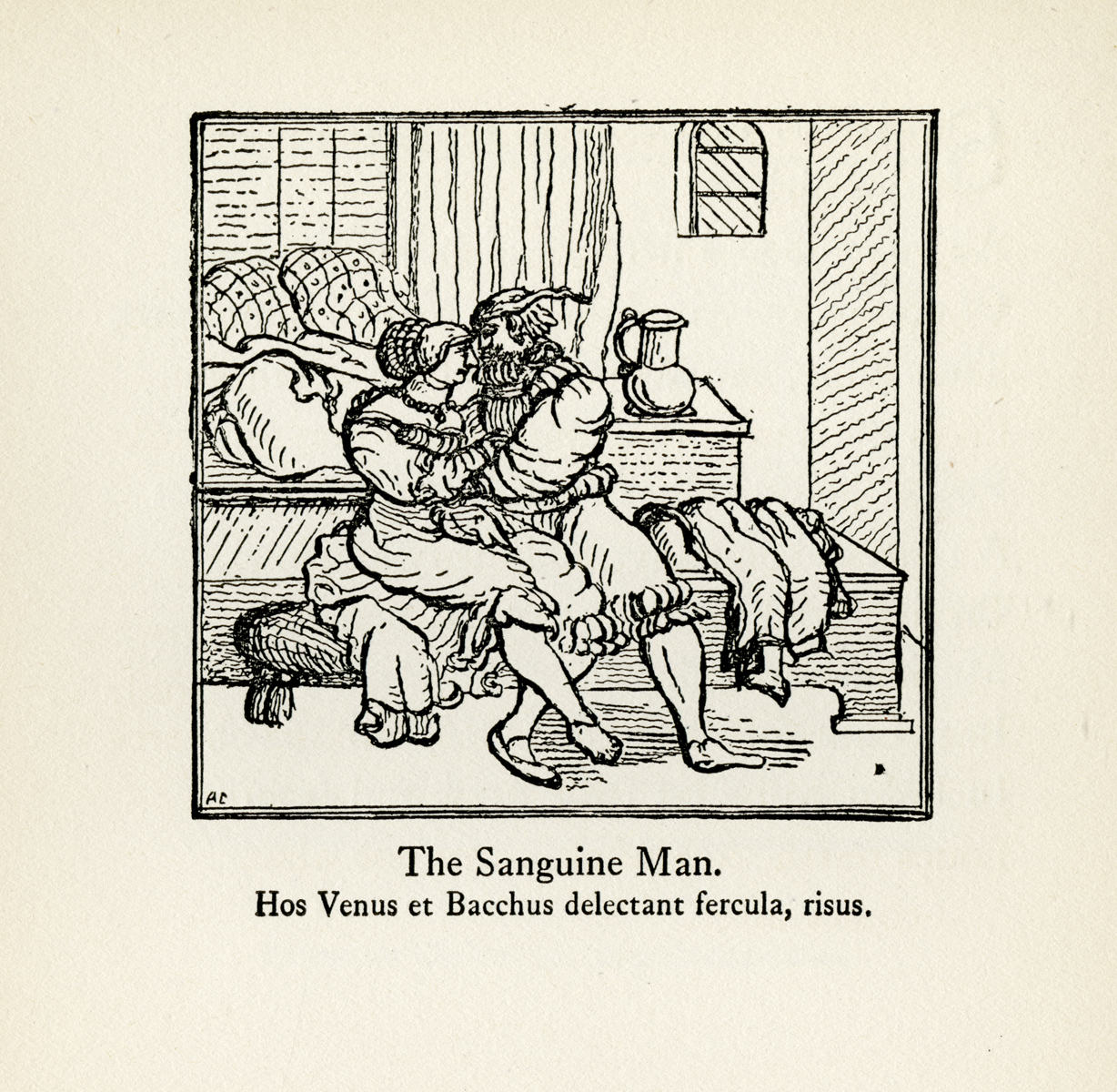
Flegmatique (pp. 138 and 139)
The Flegmatique are moft of no great
growth,
Inclining to be rather fat and fquare:
Giuen much vnto their eafe, to reft and floth,
Content in knowledge to take little fhare,
To put themfelues to any paine moft loth.
So dead their fpirits, fo dull their fences are:
Still either fitting, like to folke that
dreame,
Or elft ftill fpitting, to auoid the flegme:
One qualitie doth yet thefe harmes reparie,
That for the moft part Flegmatique are faire.
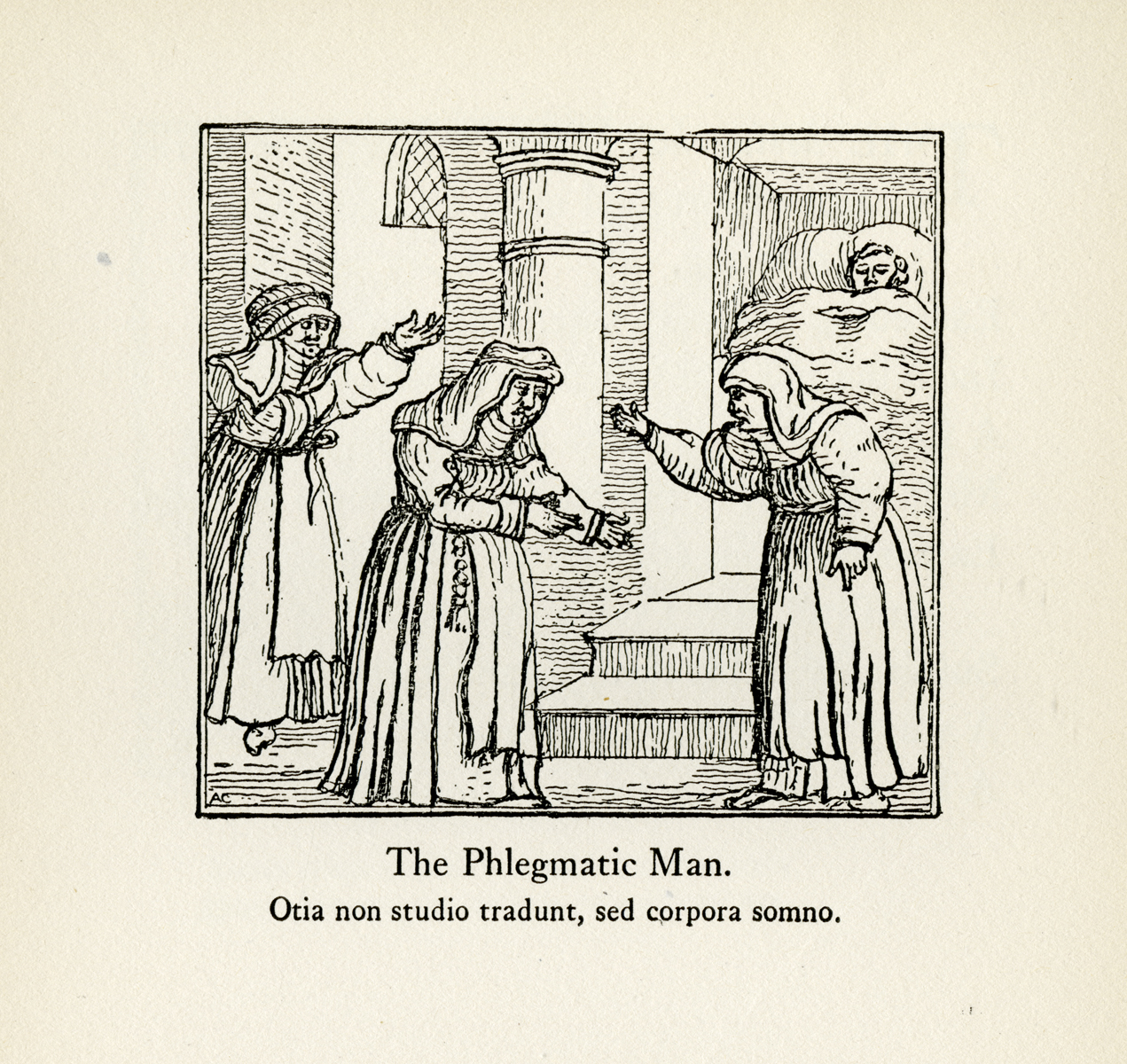
Melancholly (pp. 140 and 141)
The Melancholly from the reft doe varie,
Both fport and eafe, and company
refufing,
Exceeding ftudious, euer folitary,
Inclining penfiue ftill to be, and mufing,
A fecret hate to others apt to carry:
Moft conftant in his choife, tho long a chufing,
Extreme in loue fomtime, yet feldom
luftfull,
Sufpitious in his nature, and miftruftfull,
A wary wit, a hand much guien to fparing,
A heauy looke, a fpirit little daring.
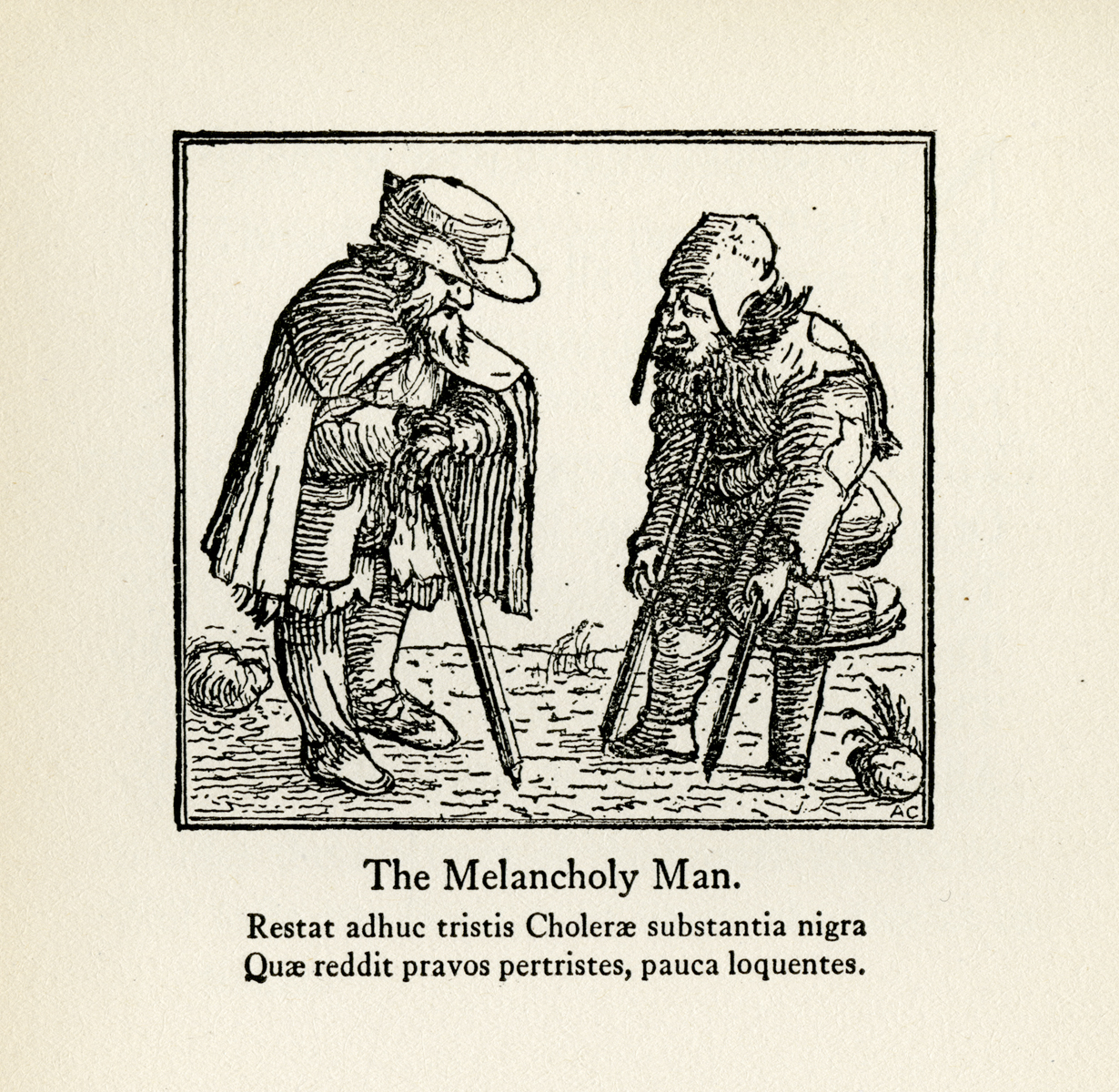
Bleeding (p.150)
But yet thofe daies I grant, and all the reft,
Haue in fome cafes iuft impediment:
As firft, if nature be with cold oppreft,
Or if the Region, Ile, or Continent
Do fcorch or freize, if ftomacke meate
deteft:
If Baths or Venus late you did frequent,
Nor old, nor yong, nor drinkers great are fit,
Not in long fickeneffe, nor in raging fit,
Or in this cafe if you will venture bleeding,
The quantity muft then be moft exceeding.
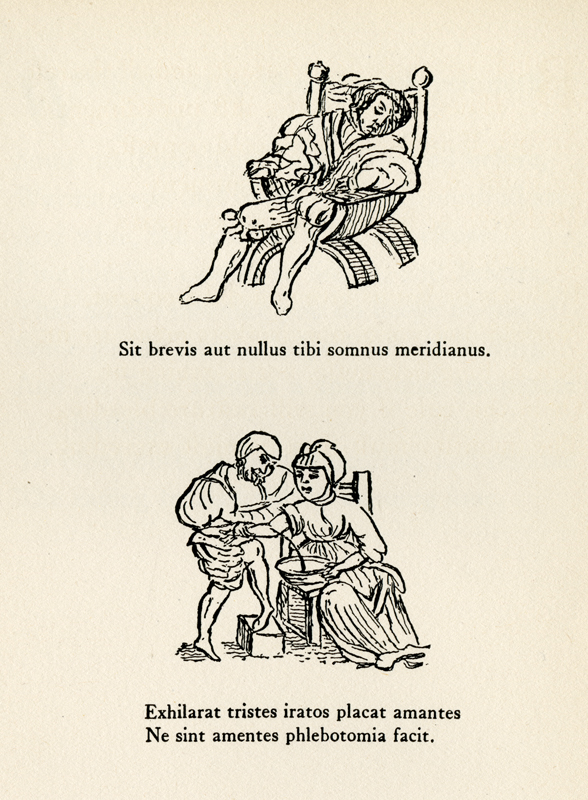
Finis (p. 156)
The Heart and Liuer, Spring & Summers
bleeding,
The Fall and Winter, hand and foot doth
mend,
One veine cut in the hand, doth help ex-
ceeding
Vnto the fpleene, voyce, breft, and intrailes
lend,
And fwages griefes that in the heart are
breeding.
But here the Salerne Schoole doth make an end:
And here I ceafe to write, but will not ceafe
To wift you liue in health, and die in peace:
And ye our Phyficke rules that friendly read,
God grant that Phyficke you may neuer need.
FINIS.
